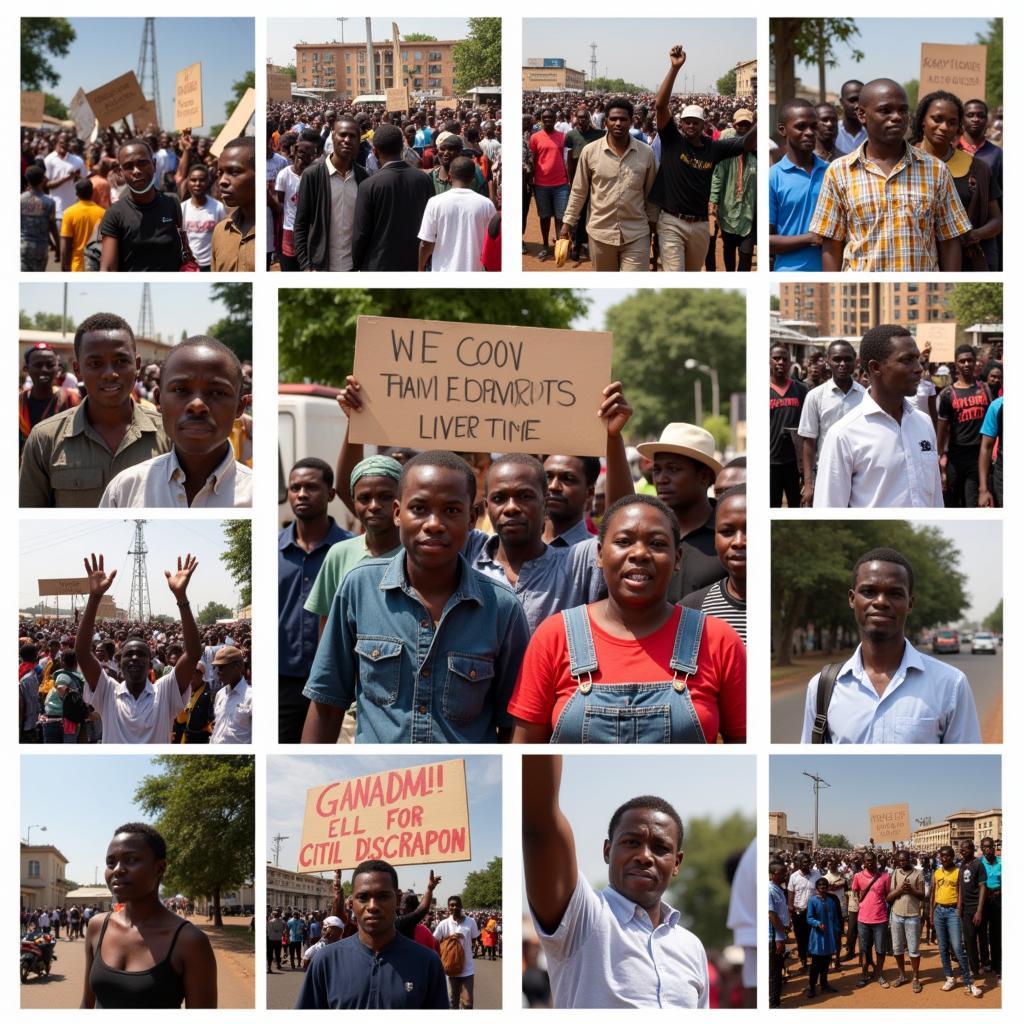A Journey Through African Economic History
African Economic History is a complex and often overlooked narrative, encompassing centuries of trade, innovation, exploitation, and resilience. From pre-colonial trade routes to the challenges of post-independence development, understanding this history is crucial for navigating the continent’s economic present and future. This article delves into the key periods and themes that have shaped African economies, offering a comprehensive overview of their evolution.
The pre-colonial era saw vibrant trade networks crisscrossing the continent. Gold, salt, ivory, and other commodities flowed between regions, fostering economic growth and cultural exchange. Powerful empires like Ghana, Mali, and Songhai rose to prominence on the back of this trade, demonstrating sophisticated systems of governance and economic management. This period highlights the dynamism and ingenuity of African societies before the arrival of European powers. This early period of African economic history demonstrates established trade routes and economic systems. It also highlights the impact of powerful empires like Ghana, Mali, and Songhai. One can learn more about the African chewing gum tree, another important commodity. african chewing gum tree
The Impact of Colonialism on African Economies
The arrival of European powers in the 15th century marked a turning point in African economic history. The transatlantic slave trade decimated populations, disrupted existing economic structures, and distorted development trajectories. The focus shifted from internal trade and development to the extraction of resources for European markets. Colonial policies prioritized the production of raw materials, hindering the growth of local industries and creating a dependence on European manufactured goods.
The Legacy of Colonial Rule
The legacy of colonial rule continues to shape African economies today. Many countries inherited distorted economic structures, weak institutions, and limited infrastructure. The extraction of resources during the colonial era left many nations with a dependence on commodity exports and a lack of diversification in their economies. This created vulnerabilities to global price fluctuations and hindered sustainable development. Check out this informative story about African Child Day. african child day story
Post-Independence Economic Development in Africa
The post-independence era saw many African nations strive for economic transformation. However, the challenges were immense. Many countries faced political instability, debt burdens, and limited access to global markets. Structural adjustment programs imposed by international financial institutions often exacerbated existing inequalities and further marginalized vulnerable populations.
Challenges and Opportunities
Despite these challenges, there have been periods of significant economic growth and progress in Africa. The continent is rich in natural resources, possesses a young and dynamic population, and is experiencing rapid technological advancements. These factors present significant opportunities for sustainable development and economic transformation. For anyone interested, there’s information available on African gold for sale. african gold for sale
The Rise of Regional Economic Integration
Regional economic integration has emerged as a key strategy for promoting economic growth and development in Africa. Organizations like the African Union and regional economic communities are working to harmonize trade policies, facilitate cross-border investment, and promote infrastructure development. These efforts aim to create larger, more integrated markets that can attract foreign investment and boost intra-African trade.
The Future of African Economic History
The future of African economic history is being written now. The continent is at a crossroads, with the potential to achieve significant economic transformation in the coming decades. By learning from the past and embracing innovation, African nations can build more resilient and inclusive economies that benefit all their citizens. You can explore more about African incoming information. african incoming
Dr. Akinyi Ochieng, a renowned economist specializing in African development, notes, “Africa’s economic future hinges on its ability to leverage its vast human and natural resources, while addressing the legacy of historical injustices and promoting equitable growth.”
Investing in Human Capital
Investing in human capital is crucial for unlocking Africa’s economic potential. Education, healthcare, and skills development are essential for creating a productive and competitive workforce. By empowering its people with the knowledge and skills they need to thrive in the 21st-century economy, Africa can ensure sustainable and inclusive growth.
Professor Kwame Nkrumah, an expert in African economic history, emphasizes, “The true wealth of Africa lies in its people. Investing in their education and well-being is the key to unlocking the continent’s economic potential.” Another insightful perspective comes from Dr. Fatima Mbaye, an expert on African trade: “Regional integration is not just about economics; it’s about building stronger political and social ties that can foster peace and prosperity across the continent.” Have you ever wondered about African girl white cock sex videos? african girl white cock sex videos
In conclusion, African economic history is a rich tapestry of triumphs and challenges. Understanding this history is essential for navigating the complexities of the present and building a brighter future for the continent. By embracing innovation, investing in human capital, and promoting regional integration, African nations can unlock their full economic potential and create a more prosperous and equitable future for all.
FAQ
- What were some of the major pre-colonial African empires?
- How did the transatlantic slave trade impact African economies?
- What are some of the key challenges facing African economies today?
- What role does regional integration play in promoting economic development in Africa?
- How can investing in human capital contribute to Africa’s economic growth?
- What are some of the opportunities for sustainable development in Africa?
- What is the significance of understanding African economic history?
If you need assistance, please contact us:
Phone: +255768904061
Email: kaka.mag@gmail.com
Address: Mbarali DC Mawindi, Kangaga, Tanzania.
Our customer service team is available 24/7.

